National Academy of Inventors
Chad A. Mirkin, elected 2013
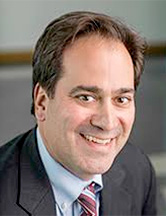
Chad Mirkin, PhD, is a chemist and world-renowned nanoscience expert known for his discovery and development of spherical nucleic acids and contributions to supramolecular chemistry and nanoparticle synthesis. He has authored over 870 manuscripts and over 1,200 patent applications worldwide (over 430 issued) and founded multiple companies. He is an Associate Editor of JACS and a PNAS Editorial Board Member.
John A. Rogers, elected 2013

John Rogers, PhD, is internationally known for designing and developing classes of electronic devices with diverse diagnostic and therapeutic function that can bend, stretch and twist to integrate with the human body. His research spans disciplines and exploits novel approaches to problems with the potential to change the fields of industrial, consumer and biocompatible electronics. He is a member of the National Academies of Engineering, Inventors, Medicine and Sciences, as well as the American Academy of Arts and Sciences.
Teresa K. Woodruff, elected 2017

Teresa Woodruff, PhD, is an expert in ovarian biology. She is credited with coining the term "oncofertility" in 2006. Woodruff served as the chief of the Division of Reproductive Science in Medicine in the Department of Obstetrics & Gynecology and founded the Women’s Health Research Institute. She is a member of the National Academies of Medicine and Inventors and the American Academy of Arts and Sciences.
Elizabeth M. McNally, elected 2018

Elizabeth McNally, MD, PhD, investigates the genetic mechanisms responsible for inherited human diseases including heart failure, cardiomyopathy, muscular dystrophy, arrhythmias and aortic aneurysms. McNally’s contributions to genome analysis have bettered understanding of rare genetic variation, allowing identification of genes that modify the outcomes of genetic diseases. She is a member of the National Academy of Medicine, National Academy of Inventors and the American Academy of Arts and Sciences.
Samuel I. Stupp, elected 2018
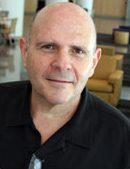
Samuel Stupp, PhD, studies nanostructures and materials with emphasis in regenerative medicine, organic electronics, solar energy and cancer therapies. He was elected to the National Academy of Engineering in 2012 for his work on the biomedical applications of self-assembled polymers. He is also a member of the National Academies of Sciences, Engineering and Inventors, and of the American Academy of Arts and Sciences.
Guillermo A. Ameer, elected 2019

Guillermo Ameer, ScD, is widely recognized for pioneering regenerative biomaterials based on a novel class of biodegradable polymers containing citrate, and using them to regenerate a variety of tissues and organs. He was elected into the National Academy of Medicine in 2021 for his work bringing regenerative engineering technology into clinical care.
Susan Quaggin, elected 2021
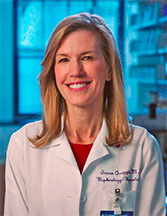
Susan Quaggin, MD, has helped enhance the understanding of common glomerular diseases and inspired the development of promising therapeutics, including discoveries regarding blood vessels, lymphatics and specialized hybrid circulations. Quaggin and her collaborators are attempting to bioengineer new organs in a dish as well as study the mechanisms of glaucoma. She is the director of the Feinberg Cardiovascular and Renal Research Institute and chief of Nephrology and Hypertension in the Department of Medicine and past-president of the American Society of Nephrology.
Daniel Martin Watterson, elected 2022
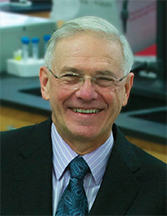
Daniel Martin Watterson, PhD, investigates the elucidation of signal transduction pathways in eukaryotic cells that are involved in both health resilience and disease susceptibility for potential new therapeutic approaches in tumor biology, intestinal disorders and neurologic diseases such as Alzheimer’s.
Shana Kelley, elected 2023
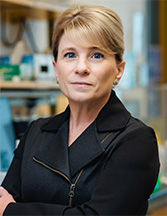
Shana Kelley, PhD, is the Neena B. Schwartz Professor in the Departments of Chemistry, Biomedical Engineering, and of Biochemistry & Molecular Genetics. She is also the president of the Chan Zuckerberg Biohub Chicago. The Kelley research group works in a variety of areas spanning bio-analytical technology development and has pioneered new methods for tracking molecular and cellular analytes with unprecedented sensitivity.
Dimitri Krainc, elected 2023
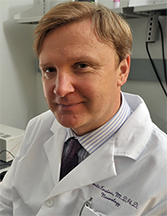
Dimitri Krainc, MD, PhD, Aaron Montgomery Ward Professor, chair of the Ken & Ruth Davee Department of Neurology and director of the Simpson Querrey Center for Neurogenetics, has dedicated his scientific career to studying molecular pathways in the pathogenesis of neurodegeneration. Informed by genetic causes of disease, his work has uncovered key lysosomal and mitochondrial mechanisms across different neurodegenerative disorders that has led to pioneering design and development of targeted therapies. He is a member of the Association of American Physicians, the National Academy of Inventors and the National Academy of Medicine.